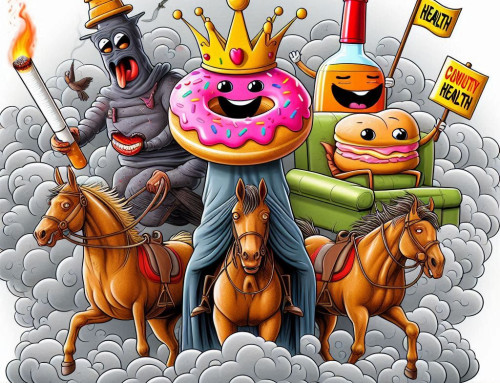A teenage student of mine came to me with four questions about teenagers and martial arts. These questions were to help him formulate a speech arguing for martial arts to be taught in high schools. I felt they were excellent questions, and with his permission, have posted them to this blog for all who are interested. Good luck in the speech Robert, hope these answers help!
What are a few benefits that martial arts can offer to a teenager?
The benefits of martial arts are numerous. Focus, self confidence, self control, self defense, concentration, just to name a few. To focus specifically on teenagers however, additional benefits from martial arts can be realized.
From a physical stand point, the neurological connections made at this time in a person’s life are crucial. Teenagers are quickly growing into their bodies. At this point in their life, physical conditioning such as the martial arts is a great way to build the neurological connections between the brain and muscles for better coordination and balance that will be used the rest of their life. While this is true with any sport, martial arts has one advantage, it doesn’t have to be competitive. This leads to less frustration, less pressure, less injuries, and therefore a much more positive atmosphere which leads to greater success and longevity.
Another aspect to take into consideration aside from the physical is that of the mental strength that is built. Martial arts practitioners are placed in difficult and stressful situations periodically throughout their training, yet are still expected to perform and think rationally.
Yet another benefit is that of building leadership qualities. Many practitioners begin teaching within a couple years of training with the understanding that teaching is an incredible way to learn and further one’s own skills, building one’s patience and understanding of the way others work and learn. Lastly, the respect, discipline, and goal setting demanded by the martial arts tends to flood into other facets of life creating an upstanding, respectable and successful adult.
How long would the average person train and practice to gain their black belt?
The time line is highly dependent on the style/system being practiced as well as the practitioner themselves. On average, drawing from my own experience, 2 to 3 years is a typical length of time to attain the rank of black belt. However I have seen some schools promote some as soon as 1 year, yet others won’t allow a student their black belt with anything less than 10 years of training.
What type of character traits are encouraged and expected in a martial artist (Discipline, Courage)?
At the beginning and end of our Taekwondo classes, in particular with the youth, we recite the “Student Oath” and the “Tenets of Taekwondo”. The oath and tenets state specifically what character traits a martial artist should develop and embrace.
The “Student Oath” is as follows:
- I will observe the tenets of Taekwondo
- I will respect instructors and seniors
- I will never misuse Taekwondo
- I will be a champion of freedom and justice
- I will help build a more peaceful world
The “Tenets of Taekwondo” is as follows:
- Courtesy
- Integrity
- Perseverance
- Self Control
- Indomitable Spirit
I would like to add another trait that I find important which was once a large part of martial arts training, but over the years I have found dying off, which I find disheartening. That trait is Loyalty. In years past it didn’t need to be said. You simply stuck with your instructor and never ventured out. All questions and training went through your instructor unless your instructor suggested outside training.
Many practitioners nowadays train in many places simply branching out to expand their experience and training. In my opinion, there is nothing wrong with this. As an instructor, I’ve always encouraged this. Where I find issues however is when practitioners jump from one instructor to another with no “home” or foundational school to return to. For many martial arts systems this is the equivalent of a crash diet. You may see temporary results, but you’ll never see permanent lasting results.
Many martial arts systems, especially the more traditional ones, were designed to be lifelong training systems not 1-3 month training systems. We build from the ground up, but when you jump from one to another with no loyalty, you’re simply rearranging the foundation or worse yet, creating a flashy looking structure that will fail when relied on. Don’t travel the world looking for the best home. Build your home in a solid place and travel the world for the additional experience and the occasional break in scenery.
Do you believe that most teenagers have the potential to display such traits discussed in question 3?
Absolutely, better than any other age group in my opinion. While it would be great to instill these traits in youth (3-12 yrs of age), most won’t fully understand these traits. They will just regurgitate what they’ve learned and what they were told to do. On the other end of the spectrum, those who have settled into their ways in adulthood will fight change every step of the way. While some take to change later in life, most fight it tooth and nail. This is why I personally have stopped training most adults using traditional methods of discipline, it simply doesn’t stick. Adults just leave when they are unwilling to change, while teenagers and youth fight to do right and be accepted by both peers and adults.
Teenagers have the best of both worlds. They want acceptance so they fight to change for what they feel is the better and they’re old enough to understand what is being taught to them, and not just following orders because they are told to do so. It’s this thought process that creates the building blocks for our adulthood, whether it be good or bad. This is why proper outside guidance is crucial.
The issue lies not within attaining traits with teenagers, it’s overcoming outside obstacles. There are so many things pulling teenagers in multiple directions; attaining good grades, sports and other extracurricular activities, social obligations, family obligations, work, etc… It’s no wonder why so many youths and teenagers today are diagnosed with ADHD; they’re not allowed to focus on one thing.
In my experience as an instructor, most teenagers who train in martial arts last no more than a year, having to drop out due to what society considers higher priorities leaving no room for martial arts. It’s a shame, especially considering the high percentage of teenagers I’ve promoted to black belt who have either continued success throughout life, or have dramatically changed their life for the better. I add myself into this as I too was a teenager (13yrs of age) when I began my martial arts journey. I shudder to think where I might be if I hadn’t walked through those doors for the first time.







I like how you said that martial arts help to build mental strength in teenagers through overcoming stressful situations. My 13-year-old son has been wanting to try something new to work on and help him grow. I will have to look into finding a reputable martial arts class for him to take to spend his time on and help boost his mental strength.
Thank you for the comment! A good martial arts studio will do wonders for your son. Hope you find a good one!